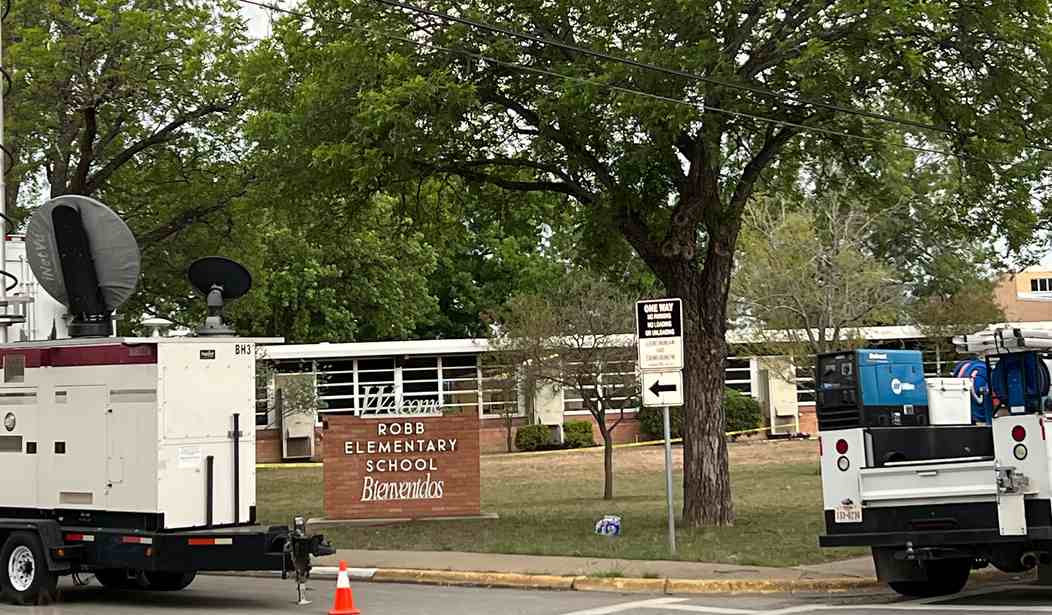We’re learning more details about the wasted time and delayed response to the school shooting in Uvalde, Texas, and each new revelation is more infuriating than the last. On Tuesday, Texas Department of Public Safety director Steve McCraw testified before a state Senate committee investigating the shooting that the initial response to the attack on students at Robb Elementary was an “abject failure”, and declared that the attack could have been stopped within three minutes of officers arriving on scene were it not for the decisions of the on-scene commander, who decided (in McCraw’s words) to “place the lives of officers before the lives of children.”
“The officers had weapons; the children had none,” McCraw told the Tribune in an interview. “The officers had body armor; the children had none. The officers had training; the subject had none. One hour, 14 minutes and 8 seconds. That’s how long children waited, and the teachers waited, in Room 111 to be rescued.”
Waited behind doors that were closed but weren’t locked, apparently. According to McCraw, none of the officers gathered in the hallway outside the classroom ever checked the doors to see if they would open; another inexplicable failure that cost lives.
It gets even worse, though. McCraw testified that one of the officers, who was married to teacher Eva Mireles, tried to enter the classroom and stop the attacker, but was detained and had his gun taken by other officers on scene.
McCraw also revealed the husband of slain elementary teacher Eva Mireles, identified as Uvalde CISD Police Officer Ruben Ruiz, tried to save her but officers in the school prevented him from doing so.
McCraw said the teacher called her husband shortly after the gunman attacked her classroom and told him “she had been shot and was dying.”
“(Ruiz) tried to move forward into the hallway,” McCraw said. “He was detained and they took his gun away from him and escorted him off the scene.”
McCraw did not reveal which agency removed Ruiz from school grounds.
While the failures of law enforcement were the main focus of Tuesday’s hearing, one parent from Uvalde said the school district also made plenty of mistakes when it came to protecting students and staff.
Bradley Hodges scolded the lawmakers after the Senate Special Committee to Protect All Texans had convened for 12 hours, in which they discussed strategies for making schools safer.
“Is there any institutional bias in the Texas school system against implementing objectively reasonable protective measures?” the resident asked the officials during a section open for public comments.
“Why are school admins [administrators] refusing to take protecting kids seriously?” he added.
Hodges pointed out that state lawmakers were swift to implement lockdown restrictions for the COVID-19 pandemic but said they were sluggish to act on gun violence in schools. “But they can’t be bothered with locking a door?” he asked, shaking his head in visible frustration.
“That’s the opposite of school safety,” he said. “That is child endangerment on an institutional level.”
The resident went on to say the problem “has been allowed to fester for way too long.”
Those demanding a gun control response to the shooting in Uvalde are ignoring the plain, though uncomfortable truth that this attack could have and should have been stopped long before officers eventually entered the classroom where the killer had been hiding for more than an hour. It wasn’t a lack of gun control that stopped officers from rattling the door of the classroom to see if the knob would turn, or from charging into the classroom once the first officer with a ballistic shield appeared in the hallway outside the classroom where young victims lay bleeding and dying.
There were so many fundamental failures of communication, preparation, and leadership in Uvalde that made a terrible situation even more horrific, and while accountability after the fact is necessary, it won’t make it any easier to forgive or forget the poor decisions and bad choices made by those who were tasked with saving lives. If there’s a lesson to be learned here, it’s that waiting costs lives, assumptions cost lives, and indecision costs lives. You don’t need legislation to fix those particular problems. You need good leaders on the ground and a willingness to charge towards the danger when every second counts.









Join the conversation as a VIP Member